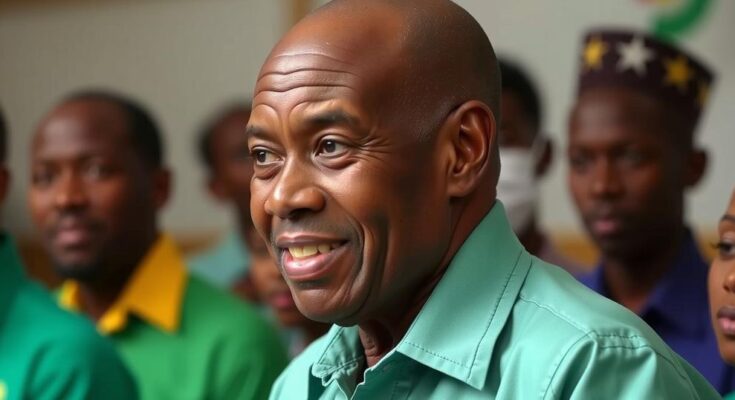Chad is conducting its first parliamentary elections in over ten years amidst skepticism from opposition parties boycotting the polls. This vote is intended to end a three-year transitional period following Idriss Deby’s death. Despite being a major oil producer, Chad’s history of poverty and security challenges complicates this electoral process, which may reinforce the ruling party’s authority.
Chad has embarked on a significant political journey as it conducts its first parliamentary elections in over a decade, marking a transition toward democratic governance following years of delay attributed to financial constraints and the COVID-19 pandemic. This election represents a formal conclusion to a three-year transitional phase that commenced after the death of long-term leader Idriss Deby in 2021. The ruling transitional government, led by his son Mahamat Idriss Deby, aims to establish legitimacy despite widespread skepticism among opposition parties, many of which are boycotting the polls, branding them as a mere facade to legitimize a political dynasty.
Voters will choose legislators for Chad’s National Assembly, comprising 188 seats, from a pool of 1,100 candidates representing over 100 political parties. Although approximately 8.3 million citizens are registered to vote, many opposition factions, including the Transformers Party, are not participating, alleging that the elections cannot be conducted fairly under the current political climate. The postponement of previous elections, meant to have occurred as far back as 2015, has fostered unresolved tensions within the nation.
In addition to the dire socioeconomic conditions—evidenced by Chad’s low ranking on the UN Human Development Index—the elections are overshadowed by significant security issues, including ongoing conflict in neighboring Sudan and threats posed by the Boko Haram militant group. Human rights organizations express concerns that the lack of comprehensive opposition involvement undermines the elections’ credibility, reinforcing calls for system reforms to ensure an equitable electoral environment.
The overwhelming influence of the ruling Patriotic Salvation Movement (MPS) is evident, as analysts predict it will secure a substantial parliamentary majority, further entrenching the Deby family’s political control. Reports from opposition factions indicate that government forces have suppressed dissent, with protests being met with severe crackdowns, raising alarms regarding freedom of speech and human rights ahead of the elections. As the polling day approaches, the tension between the ruling government and the opposition remains palpable, suggesting that the electoral process will be far from straightforward.
The parliamentary elections in Chad occur after more than a decade’s delay, with the last polls held in 2011. Following the death of President Idriss Deby in 2021, his son, Mahamat Idriss Deby, assumed authority and initiated a transitional government aimed at restoring democratic processes. Chad, which has a historical legacy of authoritarian rule and instability, is experiencing a critical moment where the legitimacy of governance and electoral integrity are at stake. With a significant portion of opposition parties boycotting the elections, the political landscape remains fractious, raising questions about the future of democracy in the nation.
The parliamentary elections in Chad symbolize a pivotal turning point in the country’s political trajectory, yet they are marred by controversy, including a boycott from opposition parties and concerns regarding the electoral process’s fairness. As Chadians head to the polls, the implications of their votes could either solidify the ruling party’s dominance or spark further calls for democratic reforms. The situation underscores the critical importance of inclusivity, transparency, and respect for human rights in shaping Chad’s political future.
Original Source: www.aljazeera.com




